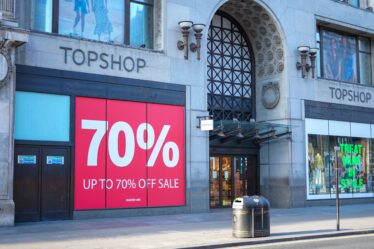
AI, for better or for worse, is here to stay. Recent developments in the field of machine learning and computational power have together born epoch-shifting fruit, in the form of generative algorithms and language models that represent the future of the digital revolution. Industries are already clamoring to fold AI into their business operation, and the fashion industry is no different. How might fashion businesses be transformed by this new technology?
Predictive Analytics
One of the more immediate advantages that AI presents for businesses relates to data, analytics and projections of future performance. Predictive analysis is a complex, labor-intensive and highly valuable facet of any business’ planning, and especially important in the fast-moving world of fashion.
Protecting proprietary plans and designs from competitors takes some legal assistance, but must also be achieved in a multifaceted way – including generating unique and accurate insights into the future of the industry and the placement of your business within it. AI can parse significant volumes of consumer data and financial projections, in order to give an unusually nuanced outlook for the future of the industry; this can help give a key edge over competition.
Personalized Experiences
With regard to the business-consumer relationship, AI Language-Learning Models (LLMs) are already paving the way to a new future of customer service. Customized, ‘smart’ chatbots based on AI infrastructure like the ChatGPT model are able to act as a pseudo-assistant for customers, answering questions and providing assistance on completing digital purchases. For fashion brands that keep their own digital storefronts, AI helpers can be indispensable.
Towards Industry Sustainability
AI represents potential for fashion businesses, in a number of distinct ways; one of the lesser-acknowledged ways relates to sustainability, with regard to the business and the environment. AI-assisted product iterations and optimizations could significantly reduce excess waste materials, thereby improving both the business’ bottom line and carbon footprint. Similarly, AI can reduce administrative bloat, making for a more sustainable long-term business model.
Creative Innovation
Finally, and perhaps most contentiously of all, AI could be transformative for fashion design, and other fundamental creative processes within the industry. Much of AI’s negative press in recent months has related to its use in creative capacities, acknowledging the blurred line between ‘training’ and ‘copyright theft’.
Many LLMs are trained on a variety of sources, including esoteric art and literature. This means that when they produce content adjacent to such works, they often interpolate aspects of them in a plagiaristic fashion. For this reason – alongside valid worker concerns about AI replacing industry jobs – AI has become a difficult topic for businesses in most creative-led industries. Still, for fast-fashion businesses prioritizing growth over reputation, AI presents a unique possibility in the form of algorithm-generated patterns and designs.




